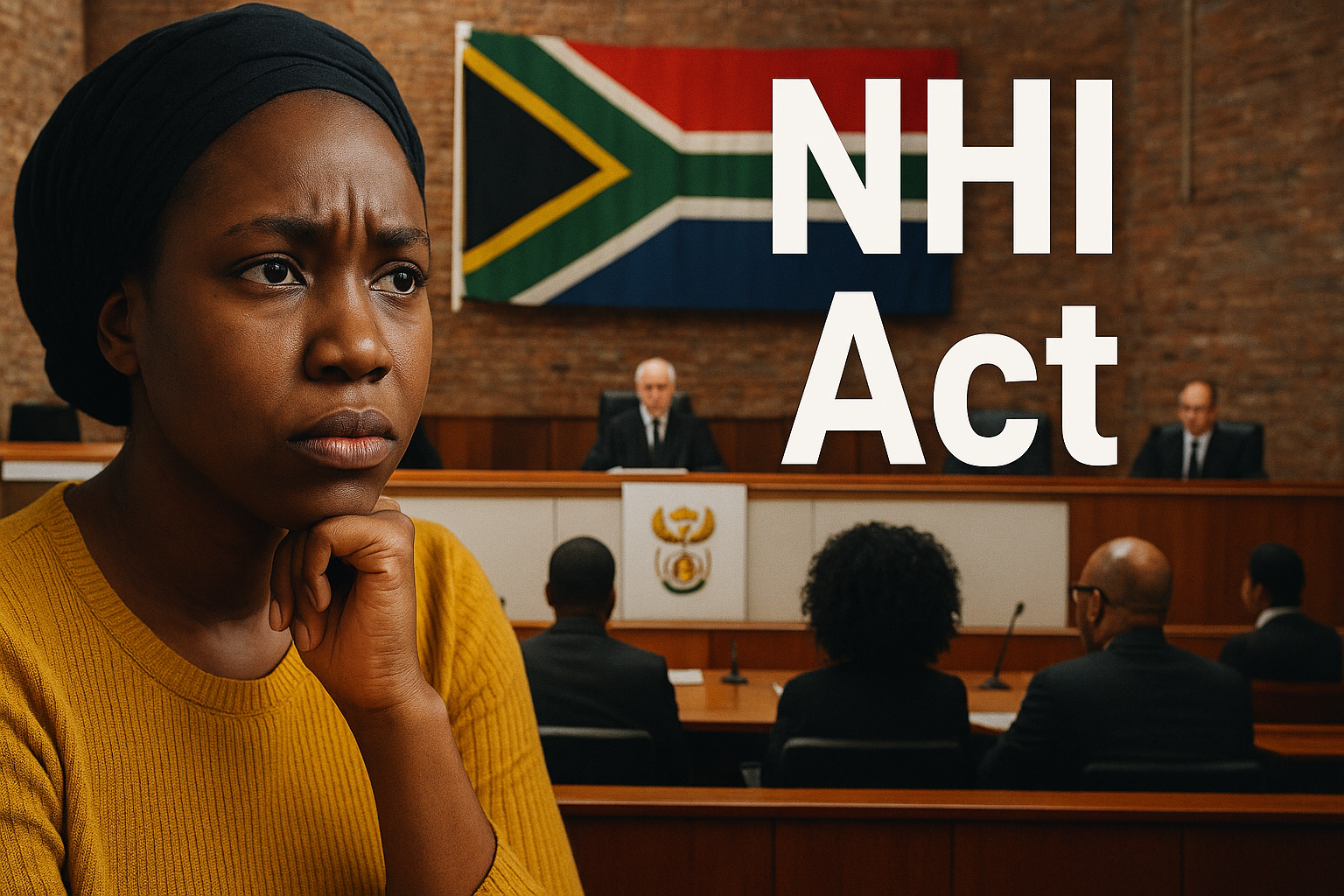NHI Act: 5 Strong Reasons Why Western Cape Says No
The NHI Act has quickly become one of the most hotly debated laws in South Africa, especially after the Western Cape government took the bold step of challenging it in the Constitutional Court. Far from being just another political clash, this legal battle raises serious questions about fairness, transparency, and the future of healthcare in the country. In this article, we’ll uncover five powerful reasons why the Western Cape government says “no” to the NHI Act and why every citizen should pay attention.
Reason 1: Flawed Public Participation
One of the biggest concerns raised by the Western Cape is the lack of genuine public participation. While hearings were technically held, critics argue they were rushed, poorly advertised, and inaccessible to many communities. This undermines the very foundation of democracy citizens deserve to have their voices heard before a law of such magnitude is passed. Without fair participation, the NHI Act risks being built on shaky ground, which may ultimately harm the people it claims to serve.
Reason 2: Constitutional Questions at Stake
The Constitutional Court challenge isn’t just about healthcare, it’s about protecting the democratic process itself. The Western Cape argues that the NHI Act violates key constitutional principles by ignoring meaningful consultation. If true, this could set a dangerous precedent where laws are pushed through without adequate public scrutiny. South Africa’s Constitution was designed to prevent exactly this kind of situation, making the outcome of this case crucial not only for healthcare but for democracy as a whole.
Reason 3: Financial Sustainability Doubts
Beyond the legal questions, there are practical concerns about how the NHI Act would be funded. South Africa is already struggling with economic challenges, high unemployment, and strained public finances. Critics argue that rolling out a massive healthcare overhaul without a clear, sustainable funding model could collapse the system. Instead of strengthening healthcare, it might drain resources and weaken services, leaving both taxpayers and patients worse off.
Reason 4: Risk to Existing Healthcare Services
Another strong reason behind the Western Cape’s opposition to the NHI Act is the risk it poses to current healthcare structures. South Africa has a fragile but functioning balance between private and public systems. Forcing a one-size-fits-all approach could destabilize this balance and drive skilled professionals out of the sector. Many fear that doctors and nurses might leave the country or move into private practice exclusively, worsening the shortage of medical staff in public hospitals.
Reason 5: Lack of Transparency and Clarity
Transparency is key when implementing a nationwide healthcare reform. Unfortunately, critics argue that the NHI Act is filled with vague promises and unclear policies. Questions remain about how funds will be allocated, who will be in charge of oversight, and how corruption risks will be handled. Without clear answers, trust in the system erodes. Citizens deserve a healthcare plan that is straightforward, accountable, and free from political manipulation.
International Concerns and Lessons
The controversy surrounding the NHI Act is not unique to South Africa. Similar attempts to centralize healthcare systems in other countries have faced significant challenges. For instance, international studies show that without robust planning and strict financial controls, such reforms often fail to deliver on their promises. Learning from global experiences could help South Africa avoid repeating costly mistakes while still striving toward accessible healthcare for all.
The Political Dimension of the NHI Act
While the debate often centers on healthcare, the NHI Act also carries a strong political dimension. For the ruling party, it represents a promise of equality and universal access. For opponents, it symbolizes a rushed policy that risks damaging the economy. This clash of ideologies makes the legal challenge more than a technical issue, it is a battle over the direction South Africa should take in balancing social justice with economic sustainability.
Impact on Citizens and Patients
At the heart of this debate are ordinary citizens who depend on reliable healthcare. Many worry that the NHI Act could reduce their ability to choose their doctors or hospitals, limiting access to quality services. Others fear long waiting times, overcrowding, and inefficiencies that already plague public healthcare. These concerns reflect genuine fears that the law, if not carefully restructured, could harm the very people it aims to protect.
Exploring Alternatives to the NHI Act
Instead of a single centralized system, some experts suggest strengthening existing provincial healthcare structures. Incremental reforms, tighter financial management, and public-private partnerships could improve healthcare without the risks associated with the NHI Act. For readers interested in understanding more about practical reforms, check out our in-depth guide on healthcare system improvements that explore sustainable and balanced solutions.
Conclusion
The Western Cape’s legal challenge has opened a crucial national conversation about healthcare, democracy, and the future of South Africa. Whether the Constitutional Court upholds or strikes down the NHI Act, one thing is clear: the country cannot afford to gamble with healthcare reform. The goal should be a system that is fair, sustainable, and truly serves the people. For now, all eyes are on the courtroom, where the future of South African healthcare hangs in the balance.




